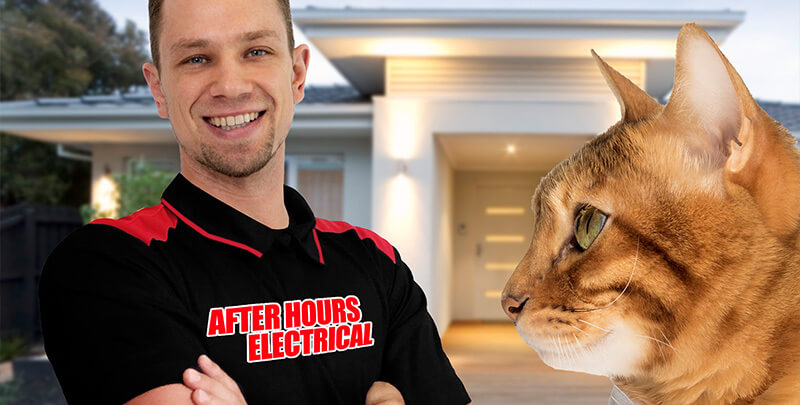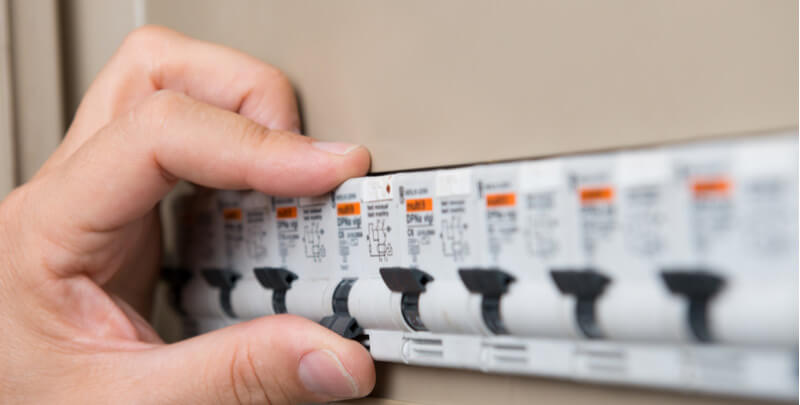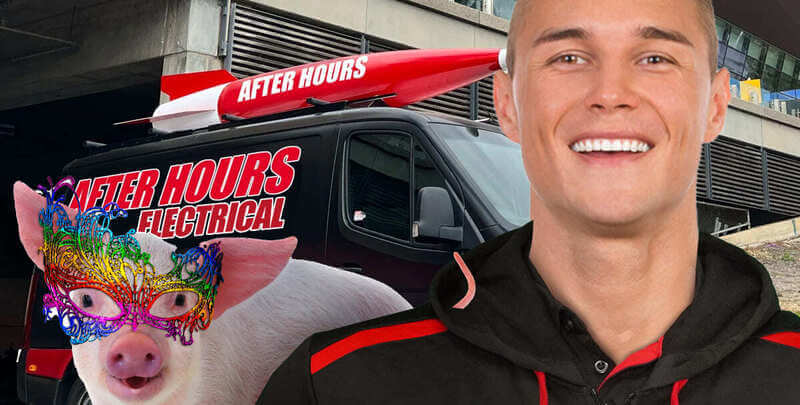Top 5 Most Common Electrical Problems at Home

Electrical problems are a common issue in many Australian households, posing potential safety risks and causing inconvenience. Understanding and identifying these issues is crucial for maintaining a safe and functional home environment.
In this article, we will explore the top five most common electrical problems found in residential settings. From power surges to electrical shocks and everything in between, addressing these issues promptly helps you to enhance the safety and efficiency of your home’s electrical system.
#1 – Flickering or Dimming Lights
Flickering or dimming lights are a common household issue caused by various factors. Loose or faulty light bulbs are often the culprit and can be fixed by tightening or replacing the bulb. Problems with light switches, such as loose connections, can also cause flickering. More serious issues like frayed or loose wiring can lead to unstable connections and require professional inspection and repair.
Ignoring flickering lights can be dangerous, as they may indicate underlying electrical problems that increase the risk of electrical fires and damage to light fixtures and systems. If simple fixes do not work, it’s crucial to seek professional help from a qualified electrician to ensure safety.
#2 – Frequently Tripping Circuit Breakers
Frequent circuit breaker trips often indicate underlying electrical issues. Common causes include:
- Overloaded circuits: Circuit overload occurs when too many appliances or electrical devices with high energy demands are used simultaneously.
- Short circuits: This happens when a hot wire touches a neutral wire. It causes an electrical surge as well as possible sparks, overheating, and potential electrical fire risks.
- Ground faults: These occur when a hot wire contacts a grounded surface. It creates an unintended electrical path and is particularly dangerous in wet areas like kitchens and bathrooms.
Circuit breakers protect your home by cutting off power when the current exceeds safe levels. Persistent breaker trips in your electrical switchboard require professional inspection to identify and resolve issues, ensuring home safety and preventing serious risks.

#3 – Dead Outlets
Dead power outlets are a common issue in homes, usually caused by:
- Faulty outlets: Over time, outlets can wear out or become damaged, leading to a loss of functionality.
- Tripped circuit breakers: Circuit breakers cut off power to the outlet as a safety measure.
- Loose or faulty wiring: Disconnected or faulty electrical wiring can interrupt the electricity flow, posing a significant safety risk and potentially causing electrical fires.
To address dead outlets, start by checking the circuit breaker panel for a tripped circuit. If this doesn’t resolve the issue, inspect and possibly replace the faulty outlet. For more complex wiring problems, consult a professional electrician to ensure safe and effective repairs. Prompt action is essential for maintaining home electrical safety.
#4 – Electrical Surges
Electrical surges are sudden spikes in voltage that can damage your home’s electrical appliances and systems. They are often caused by external factors such as lightning strikes or issues with the power lines. Faulty appliances and poor electrical wiring within the home can also lead to frequent surges.
The impact of power surges on home systems can be significant. Surges can damage or destroy electronic devices, leading to costly replacements. Additionally, repeated surges can weaken your home’s electrical infrastructure, increasing the risk of more serious electrical problems, including fires.
To protect your home from electrical surges, it is advisable to use power boards with surge protectors, which can help mitigate the effects of sudden voltage spikes. Regular maintenance and inspection of your home’s electrical system can also identify and address potential causes of surges. Ensuring that your wiring and appliances are in good condition is crucial for preventing damage and maintaining a safe home environment.
#5 – Power Outages
A power outage can disrupt daily life and pose several challenges for households. These outages can result from various factors such as severe weather, damaged power lines, or overloaded circuits. Within the home, faulty wiring and defective appliances can also contribute to unexpected power cuts.
Preventing power outages involves regular maintenance and inspection of your electrical systems. Ensure that your home’s wiring is up-to-date and capable of handling your electrical load. Installing surge protectors and having a backup power source, such as a generator, can mitigate the impact of power outages. By addressing potential issues proactively, you can minimise disruptions and maintain a reliable power supply in your home.
BONUS – Electrical Shocks
Electrical shocks are a serious hazard and can occur when you touch an electrical appliance or outlet. This issue often stems from faulty appliance wiring or damaged power cords, which create a dangerous path for electrical current. Frayed wires and loose connections within appliances can also lead to electrical shocks, posing significant safety risks.
Preventing an electrical shock involves regular inspection and maintenance of your home’s electrical systems. Ensure that all power cords are intact and appliances are in good condition. Installing safety switches and using professional electricians for repairs and installations can also reduce the risk of electrical shocks. Prioritising electrical safety helps protect your family and ensures your home remains a safe environment.

Why You Need an Electrician for Common Electrical Problems
Hiring a licensed electrician to fix common electrical faults is crucial for ensuring safety and efficiency. Licensed electricians have the expertise to diagnose and repair electrical issues like faulty wiring, problematic dimmer switches, and burnt out electrical sockets accurately. Their professional training in emergency electrical services, and their adherence to safety standards minimise the risk of electrical fires and shocks.
Attempting DIY electrical repairs can lead to serious hazards, including injury and further damage to your electrical system. Licensed electricians also ensure that all repairs comply with local building codes, protecting your home and family. Investing in professional electrical services not only resolves current issues but also prevents future problems, giving you peace of mind and a safer home environment.
Keep Your Home Safe from Common Electrical Problems Today
Addressing common electrical issues in your home is essential for maintaining safety and efficiency. By understanding issues like flickering light bulbs, frequent circuit breaker trips, dead outlets, electrical surges, and power outages, you can take proactive steps to resolve them.
Regular professional inspections and timely repairs from a licensed electrician are key to preventing potential electrical hazards and ensuring your home’s electrical system functions optimally. Prioritising electrical safety not only protects your home but also provides peace of mind for you and your family.
Please note: Thanks for reading our blog “Top 5 Most Common Electrical Problems At Home”. This information is provided for advice purposes only. Regulations differ from state to state, so please consult your local authorities or an industry professional before proceeding with any work. See After Hours Electrical’s Terms & Conditions here.